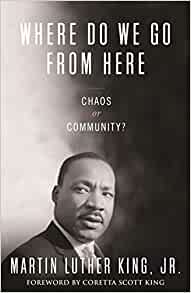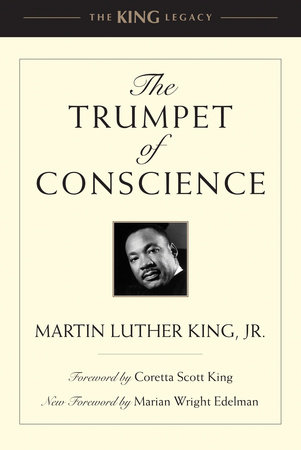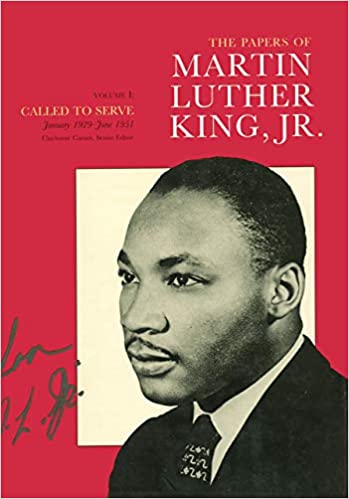Monday January 18th is Martin Luther King Jr. Day. Learn more and reflect on the life and work of Dr. King by exploring writings and words by the man himself.

Where Do We Go From Here? Chaos or Community?
In 1967, Dr. Martin Luther King, Jr., isolated himself from the demands of the civil rights movement, rented a house in Jamaica with no telephone, and labored over his final manuscript. In this prophetic work, which has been unavailable for more than ten years, he lays out his thoughts, plans, and dreams for America's future, including the need for better jobs, higher wages, decent housing, and quality education. With a universal message of hope that continues to resonate, King demanded an end to global suffering, asserting that humankind-for the first time-has the resources and technology to eradicate poverty.
Second ebook copy
Audiobook
A Testament of Hope: The essential writings of Martin Luther King Jr.
Contains Martin Luther King, Jr.'s essential thoughts on nonviolence, social policy, integration, black nationalism, the ethics of love and hope, and more.
Stride Toward Freedom: The Montgomery story
Martin Luther King Jr.'s historic account of the 1955–56 Montgomery bus boycott. The book describes the conditions of African Americans living in Alabama during the era, and chronicles the events and participant's planning and thoughts about the boycott and its aftermath.
Why We Can't Wait
1964 book by Martin Luther King Jr. about the nonviolent movement against racial segregation in the United States, and specifically the 1963 Birmingham campaign.

The Trumpet of Conscience
In November and December 1967, Dr. Martin Luther King, Jr., delivered five lectures for the renowned Massey Lecture Series of the Canadian Broadcasting Corporation. The collection was immediately released as a book under the title Conscience for Change, but after King’s assassination in 1968, it was republished as The Trumpet of Conscience. The collection sums up his lasting creed and is his final testament on racism, poverty, and war.
The Measure of a Man
In August 1958 Dr. Martin Luther King, Jr., preached two sermons, "What is Man?" and "The Dimensions of a Complete Life," at the first National Conference on Christian Education of the United Church of Christ at Purdue University. In response to demands made by conference attendees, King allowed publication of the addresses.
A Call to Conscience: The landmark speeches of Dr. Martin Luther King Jr.
Includes the text of his most well-known oration, "I Have a Dream", his acceptance speech for the Nobel Peace Prize, and Beyond Vietnam, a powerful plea to end the ongoing conflict.

The Papers of Martin Luther King Jr.
The Martin Luther King, Jr. Papers Project has made the writings and spoken words of one of the twentieth century's most influential figures widely available through the publication of The Papers of Martin Luther King, Jr., a projected fourteen-volume edition of King's most historically significant speeches, sermons, correspondence, published writings, and unpublished manuscripts.